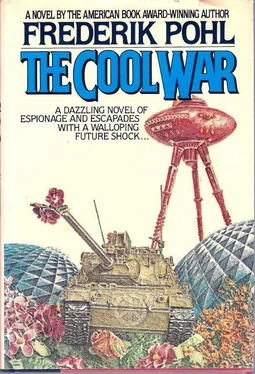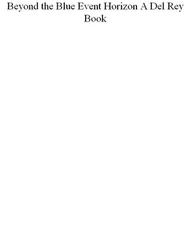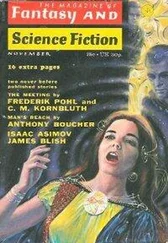“Well— Actually,” Hake said, warming up, “I did think more about it. It would be good to find someone with a special appeal to industrial workers. Or miners.”
“That’s the idea, Hake!”
“Of course, I’d need some research facilities, to look up proselytizing religions—”
“Sure you would, but not now. You won’t have time. You’ve got to catch a bus out on the highway in two hours. Then you’ll fly to Capri.”
“Capri? What the hell do I want in Capri?”
“That’s what the orders say,” Curmudgeon explained. “You’ll be met. When you get there they’ll tell you why that has to be where you’re going.”
“But— My books, for research! I’ll need them. And clothes. I’m not dressed for a trip to Italy.”
“The clothes are all taken care of, Hake. There’s somebody in Long Branch packing a suitcase for you right now—we’ve, you know, arranged a letter with your signature for your housekeeper. The clothes’ll be waiting for you when you get there.”
“But my church is expecting me back next weekl And what about the rest of the training course here?”
“You’ll probably be there in a week,” said Curmudgeon. ‘Two or three at most, probably. And as to the course— why, you’ve just graduated.”
Bus to Odessa; prop plane to Dallas-Fort Worth; jet to Rome (where Hake spent ninety minutes racing back and forth on the back of a moped to collect a suitcase); jet to Capodichino Airport; monorail to the Bay; hovercraft to Capri. Hake had left Has-Ta-Va Ranch at two in the afternoon. Fourteen hours and eight time zones later, he was bouncing across the Bay at what local time said was noon but what his interior body clock could not identify at all. What he was sure of was that he was very, very tired. He was also rather close to being seasick. He had not expected a hovercraft ride to be so choppy. Each wave-top slapped fiercely against the bottom of the vessel, and his queasiness was not helped, as he landed, by the fact that the hovership terminal stank of rotting fish.
As promised, he was met. A young woman in a black ruffled shirt and black velvet cutoffs pushed her way past the would-be guides and the vendors of Capri bells and said, “Father Hake? Yes? Give me the ticket for your bag, please. I will meet you at the car park.”
Her voice seemed familiar to Hake, and so did her soupbowl hairdo. But in his precarious condition he could not identify her. When she arrived at the car park it was in a three-wheeled electric scooter, open to the air, and any impulse toward conversation was quelled by the noise of the traffic. Capri was hot. Steamy hot and smoggy hot. The fish smell was from tens of thousands of dead little finger-lings floating belly-up in the Bay or washed on the sand, and it stayed with them all through the drive up a precipitous road. Then, at the top of a bluff, they reached a pink stucco hotel, and the smell was less fish and more oil.
The woman marched Hake through the lobby and into an elevator, shushing him until they got to the fifth floor. A Chinese couple was just coming out of a room across from the elevator, and evidently having trouble with the lock. The woman leaped to help them, closed it securely, rattled the knob, returned their key and accepted their thanks, and then let Hake into the room next door. “Get some rest, Father Hake,” she advised. “I will call for you in the morning.”
She gave him his key, and closed the door behind her.
Hake found himself in a room roughly the size of his parsonage porch in Long Branch, long enough for two normal rooms and with a balcony stretching out into the Italian sun to make it longer. Piggery! It was more luxury than Hake had ever been used to. He detected a faint twinge in the place where he kept his social conscience, while another part of his conscience was telling him that he really should be getting down to thinking about the question of proselytizing religions. But he also found that it was not hard to convince himself that, after more than two weeks Under the Wire, a person was entitled to a little comfort. He kicked off his shoes and explored the room.
The bed was oval, and covered with tasseled red velvet. When Hake sat on the edge of it to rub his feet it gave his bottom no resistance. A water bed! He wound up with his posterior at about ankle level and a rigid board under his knees, and the returning ripples dandled him ut> and down for minutes. Next to the bed was what looked like the instrument panel of an airplane: buttons, dials, switches. Some were clear enough. The sunburst was for the lights. The stylized figures of a maid and a waiter for calling service. The remote control was for the television set. Others were opaque to Hake’s perceptions. But there would be time for that. He switched on the television and lay back on the rippling bed, gratefully chill beneath him after the hot ride from the hoverport.
At that moment the lights and TV went out.
It was not just his room. The liquid-crystal illuminated hotel sign over the reflecting pool was out, too; so was the golden glow-panel over his balcony that recklessly had been going even in the middle of the day. There had been a power failure.
Since power interruptions were so familiar a part of Hake’s everyday life he began at once to catalogue what problems it might bring. Lack of heat, not a problem. Lack of reading lights—well, apart from the fact that it was broad daylight outside the window, he was starved for sleep anyhow. Lack of air-conditioning? Maybe that would be a problem. He opened the French doors to the balcony, just in case. Elevators, TV, telephones were no immediate concern of his.
So there was, really, no problem. It seemed a heavensent injunction to catch up on his rest. He threw his clothes off, stripped back the velvet spread and summer-thin blanket and in a moment was wholly unconscious on the delightfully cool and quivering bed.
He woke up with the sound of an angry Italian voice bellowing at him, and discovered at once that the cool was no longer delightful.
It was the middle of the night. The lights were on, in his room and outside. The voice was from the television set, which had come on along with the lights and air-conditioner. The breeze outside had turned cool, and the air-conditioner was making it cooler still. In fact, he was freezing. He fumbled the sound of the TV down, and the voice of the Italian man in the commercial, who appeared to be enraged because his wife had put the wrong brand of cheese on his pasta, dwindled to a furious whimper.
Hake puzzled over his watch—the bedside clock was of course useless—and decided that he had slept the clock around. It seemed to be about two in the morning, local time. He did not feel rested, but he was awake and, worse, shivering cold. He managed to get the air-conditioner turned off and the window closed, then climbed back on the bed with thin blanket and stiff spread pulled around him. It was not enough. The water under him sucked the heat away, and there was no heat in the room. Not surprising. Who would have expected to need central heating in Capri in the summer? He told himself that his body warmth would soon enough make the bed comfortable, and to distract himself he tried to decipher what was happening on the television set. It seemed to be showing straight commercials: cheese, wine, then a sports car, then the national lottery; a deodorant, an aphrodisiac (or perhaps just a perfume; but the bulge in the trunks of the handsome male model was pretty explicit), and then what appeared to be an institutional propaganda piece. It showed a young Italian youth, clearly stoned out of his mind. A sad baritone voice-over sighed, “Ecco, guaio perche fare cost?” The youth shrugged and giggled. The scene dissolved to the great cellar of a winery. In the vaulted room plastic kegs of wine were tumbling majestically off a conveyor belt, while at the far end of the chamber was a loading dock with a waiting and empty truck. The camera’s eye narrowed down on an abandoned forklift truck, alone in the middle of the room. Hake could not understand the sorrowful Italian-language voice-over, but the message was clear enough. The forklift operator was away from his post. The wine was not getting-onto the truck. The deduction that the missing operator was the blind-stoned kid was confirmed at once, as the scene changed to the following morning. The young man, no longer stoned, now repentant, stood humbly beside a white-haired man carrying a clipboard. Hake recognized the man at once, him or his double. He had seen him a hundred times on American television, tapping his glasses on a desk as he sold everything from stomach-acid neutralizes to hemorrhoid salve. By the end of the commercial the prodigal forklift operator had cleared away the backlog, the trucks were loaded and rumbling away, and the conveyor belt once more brought in its endless chain of kegs. Marijuana si—PCP no, said the fatherly baritone, as the same legend appeared on the screen.
Читать дальше












